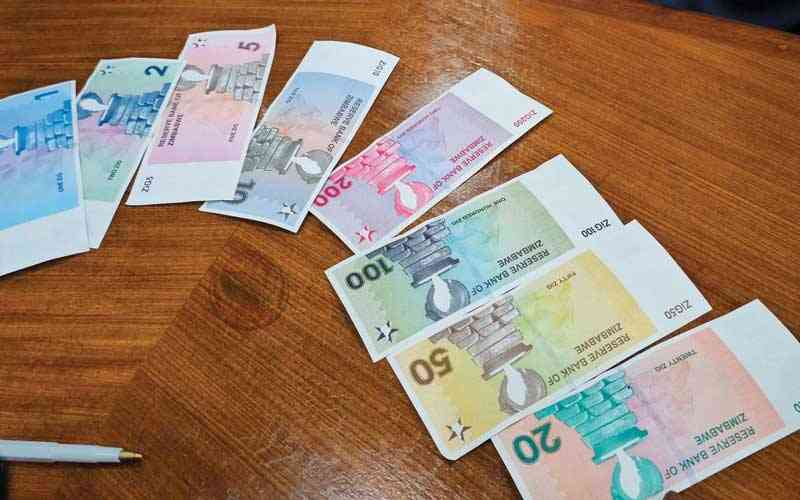
The Reserve Bank of Zimbabwe (RBZ) made a significant move on April 5 2024, releasing the 2024 monetary policy statement (MPS) and introducing a new currency, the Zimbabwe Gold (ZiG).
This policy also brought in a series of measures such as adjusting interest rates and statutory reserve requirements and eliminating bank maintenance and service charges on accounts below US$100 per month.
The 2024 MPS was unveiled when the market was rapidly self dollarising, with over 80% of economic transactions being conducted in United States dollars (USD).
This shift was primarily due to persistent local currency volatility, which saw it lose over 70% of its value in the first three months of 2024.
The constant, severe fluctuation of the local currency has led to unbearable price growth for consumers.
History is a painful reminder of losses incurred by economic agents over the years since the nation started currency revaluations in 2006.
Between early 2006 and early 2009, the RBZ officially revalued the Zimbabwe dollar at least thrice before dumping it for the USD under a multicurrency regime.
Again, since its reintroduction in early 2019, Zimbabwe has witnessed three types of local currency: the RTGS dollar in February 2019, the Zimbabwe local dollar (ZWL) in June 2019, and now the ZiG in April 2024.
- Awards target married couples
- Awards target married couples
- Zimbabwe needs to rethink economic policies
- Zimbabwe needs to rethink economic policies
Keep Reading
Whenever a new local currency is launched, economic agents lose a significant portion of the value of their deposits and savings kept in the banking sector.
This phenomenon has primarily reduced public confidence in banks and the government’s monetary policies, encouraging pillowcase/mattress banking, particularly for the informal sector economy.
Yet, public confidence in the government and its policies is the primary prerequisite for any successful local currency.
In its analysis of the 2024 MPS, (Zimbabwe Coalition on Debt) Zimcodd commended ZiG's concept of anchoring the currency with reserve assets and currencies like gold and USD, seeing it as a potential solution to the recurring currency conundrum.
However, given the current circumstances, one must ask: Can the ZiG withstand the dwindling public confidence in the local currency?
Against this background, Zimcodd seeks to proffer some recommendations that may go a long way in rebuilding market confidence and durably stabilizing the newly structured currency, the Zimbabwe Gold (ZiG).
In theory, economics could be non-political. Yet, in practice, politics and economics have a direct relationship.
In short, economics needs political support.
As such, there is a need for adequate political will to support the swift implementation of 2024 monetary policy measures together with other critical sector-wide reforms.
The monetary authority has announced various policy measures to tame price and currency instability in 2024.
The fiscal authority is also expected to institute fiscal policies to bolster the monetary policy front.
As such, there is a need to fully implement these policies while maintaining consistency in several interrelated ways: internal, vertical, and horizontal consistency.
Zimbabwe has decided to back its currency with commodities and reserve currencies, which is good.
The onus is now on the Treasury to live within its means primarily to allow the RBZ to adjust the supply of ZiG to maintain confidence in future gold convertibility.
As such, there is a need for increased fiscal discipline if the ZiG is to succeed.
The government must curb public resource leakages through corruption, review national projects and programmes to identify misplaced priorities, redirect expenditures to social sectors, and reform its long-term infrastructure financing models to reduce pressure on the fiscus.
Only through fiscal discipline will the RBZ be able to cut on its quasi-fiscal operations and achieve monetary discipline.
The RBZ has announced that the ZiG exchange rate will be determined by market forces of demand and supply on the WBWS interbank market, with it only intervening to clear the resultant disequilibrium.
But this is not new.
The central has held this position since 2019. Yet, the local currency price discovery process is still experiencing solid structural bottlenecks.
It is the public’s view that a fully floating ZiG exchange rate, when coupled with sound fiscal management, will subdue speculative attacks to help win the war against the black market.
There is also a need for increased efforts to subdue exchange rate multiplicity, which sustains corruption, rent-seeking, and round-tripping shenanigans.
It is the public’s view that gold coins and gold-backed digital tokens (GBDT) trading should be discontinued as they risk creating unnecessary gold demand, which constrains an accelerated accumulation of reserves.
These gold coins & GBDT will likely have their own exchange rates in the market.
At least following the global 10-15% rule of thumb, the ZiG notes must also be made available and easily accessible to the transacting public.
Otherwise, the ZiG notes and coins will also have a different exchange rate from that of ZiG electronic balances, creating a fertile ground for parallel market activities.
It remains the public’s view that while accumulating reserves to back the ZiG is crucial, having an independent and effective central bank that the public can trust is paramount.
As such, authorities must swiftly undertake bold reforms to regain lost market confidence.
Only through social consensus and swift implementation of sector-wide reforms (public and private sector alike) will the ZiG be able to perform the main functions of money: store of value, medium of exchange, and unit of account.










